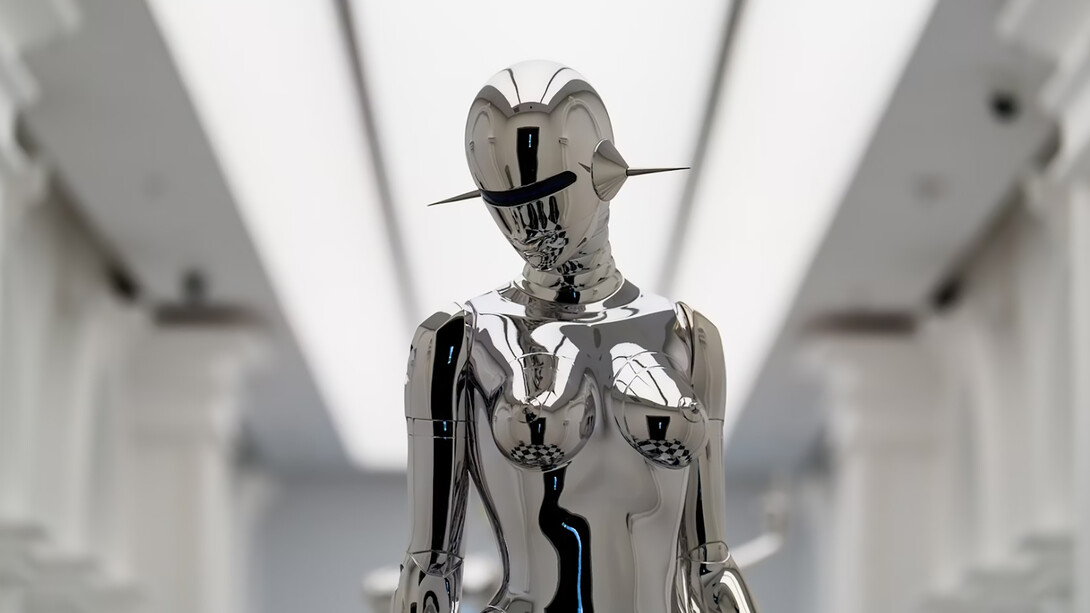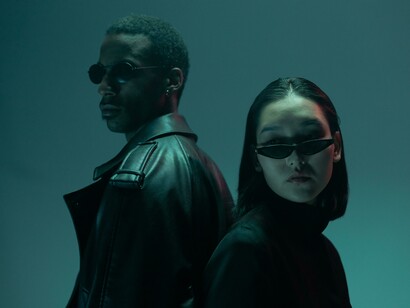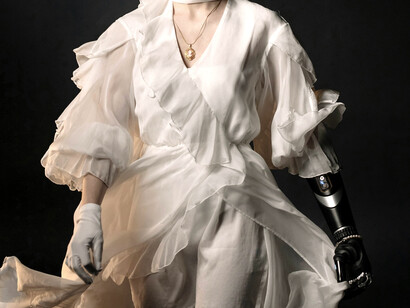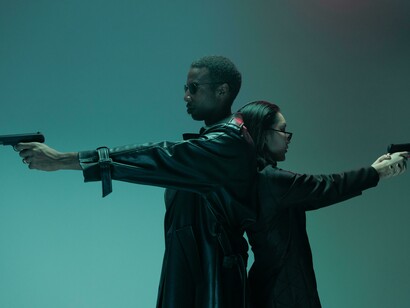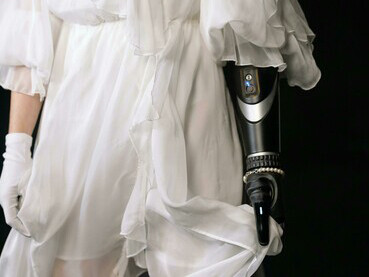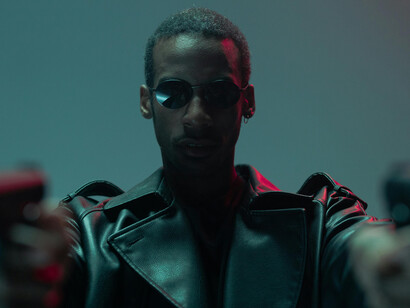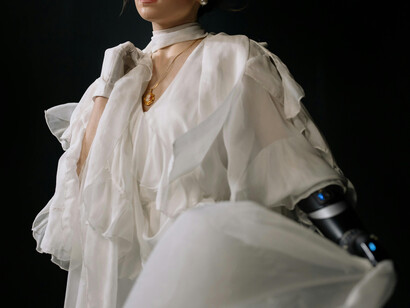Artificial intelligence is everywhere. It pervades almost, if not all, aspects of our daily lives. Most of the time, we do not know how much. It is everywhere, and we can feel it yet notice it. Information depends on it, finance depends on it… So does labour, and let us not be surprised; what makes us properly human – specifically, Homo sapiens – is creativity.
I have briefly dealt with this latter issue in a previous piece concerning music and discussing Adorno’s writing on this topic. Now, I would like to engage the discussion on AI properly, more directly. Above all, because there are many high theoretical, philosophical, and, most importantly, social issues at stake. This is a complex debate, which this modest contribution will, let us be frank, not be able to solve once and for all.
AI’s rise to paramountcy seems to be on the verge of fulfilling some of the worst nightmares that dystopian narratives told us in modern literature if we set aside, for a moment, the instauration of different totalitarian futures like Orwell’s or Bradbury’s. Apparently, humanity is on the brink of collapse and should soon be subdued by ruthless robots whose aim is either to exterminate or enslave us. However exaggerated, these ‘prophetic’ narratives tell us much about the fantasies that are raised by the rise of AI. The aim of this piece is to consider the relevance of this concern by trying to consider this question: Can AI really replace us?
AI’s phantom menace
In this section, let us focus on discourses on AI and the future of humanity. The argument that follows draws inspiration from science fiction cultural production to discuss the fear and anxiety of AI and its derived technologies. A choice was made to use stories and cases where it is assumed that AI is evil, whereas in other cases, we could have focused on stories in which intelligent machines are kind and devoted to the good of humanity. It is the case for Asimov’s History of the Future, in which a robot silently directs the course of human history across many thousands of years in the name of the laws of robotics. In reality, this idea to do things in our name does not always end up well. This is what the story of I, Robot tells us. Especially in the Will Smith-starring Hollywood version. But in the cases here in consideration, machines have overtly become humanity’s enemy and the most lethal threat that we have ever known.
When considering Hollywoodian movies about machines that want to either enslave or wipe us totally out, it is difficult to think of films other than, on the one hand, the ‘Terminator’ and, on the other hand, the ‘Matrix’ franchises. Both premises are that machines are an antagonistic kind that threatens the existence or the freedom of mankind. Terminators are here to wipe us out; the Matrix is a system whose purpose is to turn incubated humans into batteries that ‘feed’ the machines, thus affording these latter to survive.
Another good inspiration can be found in the ‘Hyperion Cantos’ series of books by Dan Simmons, written between the late 80s and the early 90s. In a very distant future, humanity has spread across the galaxy. The whole series can be summarised as a feud that opposes our kind to an entity named the TechnoCore, a conglomerate of self-sentient Artificial Intelligences, whose ultimate goal is to subdue humans and use them as data sources. Indeed, the TechnoCore is thus the main antagonist of the Heroes that are, first, a recreated John Keats, and a messiah-like girl known as Aenea.
In my opinion, the real stake for these tales of science fiction being more relevant today is that the current state of technology more concretely mirrors plausible futures. In a very similar fashion to Simmons ’in his Hyperion series, we are getting closer to the emergence of what he dubbed a datasphere, which humans rely on for all information and knowledge. The issue is, however, that the datasphere is made and monopolistically controlled by this antagonistic TechnoCore. As is often, sci-fi novels are works of anticipation that send us back to our present. Though (still) owned by human entrepreneurs, it is quite easy to figure that AI firms play quite a similar role as the TechnoCore in fiction.
Every day, the debate goes on about the potential dangers represented by AI. Written, audio, and video content is plenty that warns us about how AI will soon or later submerge us. Such warnings even came from people involved in designing and engineering artificial intelligence software. It is feared that AI would threaten to replace human labour, implement generalised surveillance, and, above all, weapon automation controlled by a self-aware artificial intelligence program. It is worth noticing that Wikipedia, which has probably become the first global source of ‘reliable’ information and knowledge, has an article on the risk posed by the rise of AI, which is written in 21 languages so far. It is possible to read there that political leaders have called for a ‘regulation’ of AI technologies. An international conference on the topic took place in Paris between February 6th and 11th.
The fear that machines can take over and subdue humans is thus very serious. It may deserve to be more seriously addressed. And it may be worth considering that the concern is not new. It is part of the general discourse on modernity and the rise of post-industrial societies. With the Industrial Revolution, the question of technological advancement was already a matter of stark debate. In some cases, there were groups like the Amish who refused it as a manifestation of the Devil. More materially, the place of technology in the process of production and the workers’ revolution was an important question that opposed Marx and Bakunin. Whereas the former saw in technology the means to overcome capitalism and emancipate the workers, the latter remained sceptical and figured that it could become an instrument of oppression and domination.
This difference between the two theorists of the Revolution echoes well beyond the milieus of the far left. As already stated, the omnipresence of technology anguishes people who live within the boundaries of modern society. Indeed, being ‘modern’ often equals being ‘technological’ and, nowadays, connected. A society that would be ‘unconnected’ to information and communication technologies is more than likely to be considered backward and underdeveloped. In the global capitalist world, governments spend billions of dollars or euros to develop new generations of telecommunication networks as part of their countries’ plan of infrastructure development. During the nineteenth century and a large part of the twentieth, urban centres were thought to be the centres of development, progress, and advancement, whereas the rural areas were generally thought of as spaces of backwardness.
Nowadays, technological advancement means that one has to have the possibility to watch their TikTok reels even in the most remote locations of a country. Where Sir Cecil Rhodes dreamed of annexing the stars, ICT magnates aim at connecting the most remote angles of nature to the global market in the name of the sacrosanct commodity. The advancement of ICT has reached the point at which technology has achieved the advent of artificial intelligence. And, humankind sees it with both pride and anxiety.
AI versus human creativity
The interest of SciFi, in the present case, is that it places humanity in front of its ‘Other’. Generally, science-fictional ‘Others’ of humans are either zombies, aliens, or robots. Fictions about AI are part of the latter. What is interesting is that the collective imaginary generally views robots as human-form automatons gifted with intelligence and a certain degree of self-sentience. In short, robots are improved versions of ourselves: their mechanical bodies are stronger than ours, their senses more performant, and thanks to the development of AI, they are supposedly smarter. With the emergence of AI bots, AI composes music and paintings, and even has kickboxer robots to fight in our place.
Thus, it seems that AI and machines driven by it are truly replacing humans. It is important to stress this fact: the original meaning of the Polish word ‘robot’ is ‘slave’ or ‘servant’. However, smart machines raise fears and concerns. They either turn us into their slaves (we would be the robots of the robots) if they think that elimination is not the best thing to do. These are the grim perspectives presented by an FI story.
The point of these fears is that we implicitly acknowledge that informatics and robotics produce projections of ourselves. For now, human beings produce technologies and therefore imagine devices. That explains why robot-killers are very often of humanoid forms, whether they resemble human skeletons in Terminator or are hardly distinguishable androids in Philip K. Dick’s novels. The latter pushed the reflection on the distinction between man and machine very far.
Dick gave a fascinating speech on the topic at the Vancouver Sci-Fi convention in 1972, where he discussed the tenuous border between humanity and computation. In his speech, Dick scrutinised the human psyche in relation to technology and vice versa. The author’s argument speaks for itself very relevantly: “In a very real sense, our [AI] is becoming alive, or at least quasi-alive, and in ways specifically and fundamentally analogous to ourselves.” The statement leads him to conclude that “rather than learning about ourselves by studying our constructs, perhaps we should make the attempt to comprehend what our constructs are up to by looking into what we ourselves are up to.” Why so? Because, “Machines are becoming more human, so to speak – [and] some meaningful comparison exists between human and mechanical behaviour.”
Human-produced technologies have reached a point at which “our electronic constructs are becoming so complex that to comprehend them, we must now reverse the analogising of cybernetics and try to reason from our own mentation and behaviour to theirs – although I suppose to assign motive or purpose to them would be to enter the realm of paranoia; what machines do may resemble what we do, but certainly they do not have intent in the sense that we have; they have tropisms; they have purpose in the sense that we build them to accomplish certain ends and to react to certain stimuli.”
The difference between ‘us’ and ‘them’ is physically not yet to the extent that we may not be able to see clear differences, but technologies are getting closer to it every day. Already, we have a hard time differentiating human writing from the authorship of AI. Now, we could imagine writer androids, a simulacrum of Ludwig Von Beethoven or John Keats, or a fusion of various personalities blended into a brand new original synthetic being.
This is why Philip K. Dick extrapolates an apparently absurd situation in which “we and our elaborately evolving computers may meet each other halfway. Someday, a human being, named perhaps Fred White, may shoot a robot named Pete Something-or-other, which has come out of a General Electric factory, and to his surprise, see it weep and bleed. And the dying robot may shoot back and, to its surprise, see a wisp of grey smoke arise from the electric pump that it supposed was Mr White's beating heart. It would be rather a great moment of truth for both of them.” This leads Dick to ask: what is it, in our behaviour, that we can call specifically human? [What] is special to us as a living species?
And what is it that, at least up to now, we can consign as merely machine behavior, or, by extension, insect behavior, or reflex, no definitive answer, but he pointed to the fact that machines cannot reach the level of genuine creativity expressed by humans. It could be added that machines have not accumulated the millions of years of experience and interactions with the environment (beyond good and evil) of humankind. Even the most sentient bot embodied in an android carcass is unlikely to figure out the interest of, say, mastering fire or carving a stone to make a spear and hunt for animals to be cooked on the said fire. What purpose would a bot find in painting, composing, and playing a piece of music?
That would require, in the first case, the sense of taste and hunger, and, in the second case, millennia of social interactions to build what we identify as culture, aesthetics, and the kind of excitement and pleasure provoked by the encounter between modulated vibrations and the human brain. There is still a long path to the day when automata are able to mimic human sight or hearing, let alone the spontaneous ability to make sense of pictures or melodies. Would it make sense for robots to admire Renaissance painting or discuss postmodern sculpture? This is rather doubtful, even if artificial beings reach consciousness and sentience. It is so because machines are made on purpose and for purposes. It is still an ongoing debate whether human beings and the whole ‘natural’ forms of life on earth – and, possibly, in the entire universe – make any sense whatsoever.
Life goes on; humanity goes on. Human beings surely question the purpose of their existence. Yet, they carry on blindfolded, ignorant about why they are here and what they are supposed to do. Human beings are creating forms of art that have no interest if not for the feelings that arise because of their beauty. Now, beauty can be a relative concept, but humans feel emotional and are able to do so. Given that nobody can explain exactly what emotions are, it is improbable that any of us will be able to create an emotional android. Furthermore, it is unlikely that androids could reproduce a mother’s love for her child, the grief of the loss of a dear one, or the rage in front of injustice, which people are moreover unable to define consensually.
We are humans, and not constructs. We cannot be unplugged, and what beats in us is a heart, not some silicon pacemaker. We surely depend on technology to the point that technology may own us, or is very likely to fuse with us if we decisively head towards transhumanist delirium.
As Dick put it, “My full measure of devotion, in this war we are fighting, to maintain and augment what is human about us, what is the core of ourselves, and the source of our destiny. Our flight must be not only to the stars but into the nature of our own beings. Because it is not merely where we go, to Alpha Centaurus or Betelgeuse, but what we are as we make our pilgrimages there. Our natures will be going there, too. "Ad astra" – but "per hominem".
For this author, the idea of “becoming (...), an android, means (...), to allow oneself to become a means or to be pounded down, manipulated, made into a means without one's knowledge or consent – the results are the same. But you cannot turn a human into an android if that human is going to break laws every chance he gets. Androidisation requires obedience. And, most of all, predictability. It is precisely when a given person's response to any given situation can be predicted with scientific accuracy that the gates are open for the wholesale production of the android life form.
"And we must never lose sight of that.” Humans are limited. Yet, they have inside of them the freedom to think and create, produce, reflect, but also imagine beyond the boundaries of the universe itself. Above all, they have the power to say ‘no’. Again, Philip K. Dick rejoiced to think, “The android, like any other machine, must perform on cue. But our youth cannot be counted on to do this; it is unreliable.”
Conclusion
“New informational technologies are transforming the older traditional ways of seeing things and, somehow, the world as it was hitherto known and interpreted. AI could lead human beings to overcoming their cognitive and biological limitations. Thus, the risk is that, in the foreseeable future, it creates a universe where intelligence is cut off from consciousness, awareness, and humanity itself.”
These words are taken from the recent book by Vanni Rinaldi. This author engaged in a discussion about the possible loss of humanity and, therefore, the transition towards the ‘androisation’ mentioned by Dick in his speech of 1972. Both had in common that they saw in the exaggerated scramble for technologies the ultimate loss of freedom and humanity.
With them, great minds such as Heidegger, Bakunin… the experience of many others experienced the results of uncontrolled technological development and its fetishism. Human societies are seemingly heading to a dystopian future that they should be willing to avoid. If hope is placed in universal freedom, it is necessary to give back to people back the power to keep AI and robotics in their own hands. Democratic debate, control, and decisional power on these matters are crucial, as is the submission of economics to social and ecological aspects of human development. Keeping our human character thus requires a real, genuine, and sincere public reflection.
